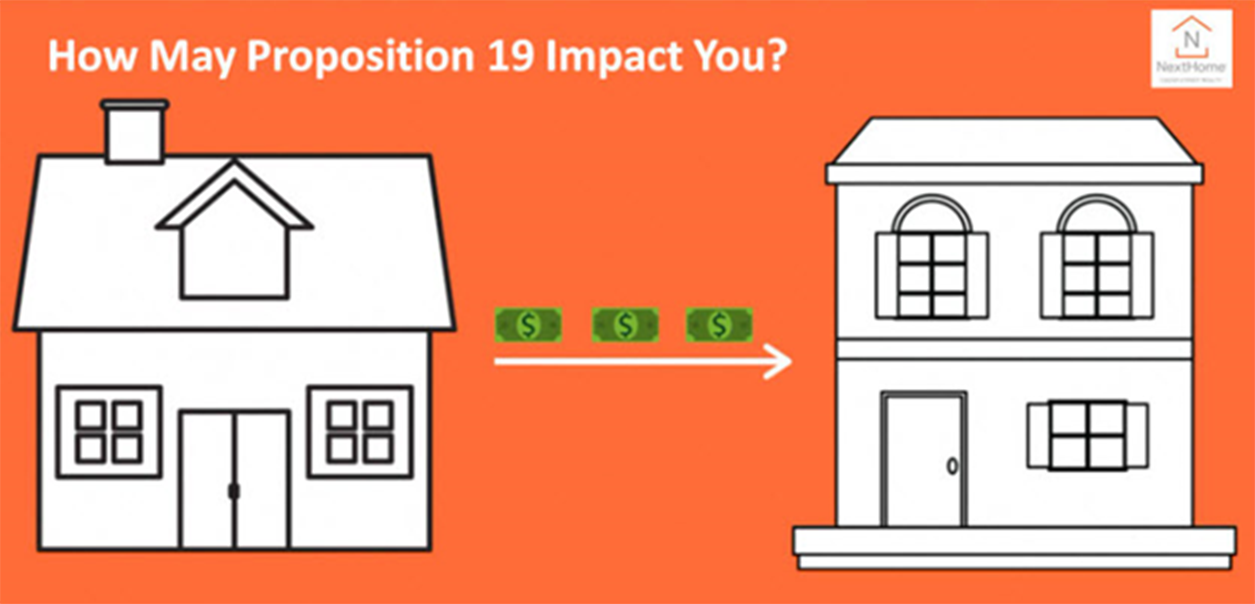Blog
Blog

11 Dec, 2023
When you’re purchasing a home, be sure to do a final walk-through before your signing. It’s IMPORTANT! Make sure all of the items included in your contract are still in the house, that there are no leftover personal items, and everything is clean, and in tip-top shape. Don’t lose your leverage by waiving your rights to this vital step in the process.

11 Dec, 2023
Understanding how Proposition 19 affects property tax implications tied to your property transfer is an important consideration when buying or selling a home. Starting April 1, 2021, homeowners who are 55 or older or those who lost their home in a natural disaster are allowed to transfer the taxable value of their primary residence to a new home in California. If you purchase a more expensive home, the tax bill will go up but by a lower amount than for other buyers. This kind of tax transfer can be done three times and homeowners have two years to sell their current home and buy a new one. The prior rule limited this exemption to a one-time transfer within the same county or between certain counties and only if the replacement property was of equal or lesser value. Can my client buy/sell now and take advantage of the tax portability benefits before April 1, 2021? If you wish to obtain the tax benefits of Prop 19 for a transaction that closes before April 1, 2021 , whether it is buying or selling a property, I would recommend speaking to a qualified California real estate attorney. If the replacement property is of equal or lesser value, does the tax basis of the replacement property change? No. The taxable value of the original property may be transferred and become the taxable value of the new one. If the replacement property is of greater value, how is the new taxable value calculated? The new taxable value is calculated by adding the difference between the full cash value of the replacement property and the original property to the original taxable value. For example, if a seller of an original property has a $300,000 taxable value and a full cash value of $1M and then buys a replacement property for $1.5 M, the taxable value of the replacement property would be $800,000. Can a replacement property be purchased prior to the original primary residence being sold? Yes. This is how the current rule under Prop 60 works and Prop 19 uses nearly identical language. How does Prop 19 affect the rules on intergenerational transfers to children or grandchildren? Prop 19 eliminates the ability for a home to pass from a parent to a child or a grandchild without reassessing the home value unless it’s the child’s or grandchild’s primary residence. If the child or grandchild doesn’t live in the inherited home and instead chooses to rent it out, the tax value can be re-assessed. Right now, family members can transfer a home and the property value won’t be reassessed. They can also transfer other rental or commercial properties and exempt up to $1 million of the assessed value. If the property is more than $1M over the original tax basis, what is the new taxable basis? The new taxable basis will be the assessed value of the property at the time of transfer minus $1M. When do these new rules on intergenerational transfers apply? The new changes to property transfers among family are set to begin on February 16, 2021. Where may a claim to transfer a tax basis be made? Claims may be made with forms provided by the local county assessor’s office.

By Laura Agadoni
•
17 Nov, 2021
The holiday season is typically not peak listing time for real estate. But the current situation, namely a super-low supply of homes coupled with great demand, is not typical. Usually, there are fewer buyers than, say, in May or June, meaning that homes tend to take longer to sell during the holidays. So sellers often wait to list until spring. But this year is one like no other.

By Kate Dore
•
05 Nov, 2021
There’s a growing number of unmarried couples buying homes together, and without proper planning the move may create future problems. Indeed, 9% of home buyers were unmarried in 2020, according to the National Association of Realtors. While younger millennials, ages 22 to 30 years old, represent 20% of unmarried purchasers , acquiring property as partners is a cross-generational trend. “It’s happening across the board, and everybody needs to be careful,” said Sheryl Dennis, estate planning attorney at law firm Fields and Dennis LLP in Wellesley, Massachusetts. That’s because co-buyers have fewer protections and may face legal issues if the relationship sours or one partner dies unexpectedly, experts say.

14 Jul, 2021
In our hot Seller's Market, we're seeing a lot of Non-Contingent Offers from Buyers. What does that mean? Well it means that Buyers are at risk for losing their deposits or even paying damages if they decide not to purchase after an offer is accepted. Even Sellers should be cautioned about this strategy which leaves Buyers feeling powerless during the purchase process and may be more likely to become disgruntled after the sale. Here is a link to the California Association of REALTORS that will provide you with more information about the risks and rights with non-contingent offers. You can also download this QUICK GUIDE .
Office
2241 Douglas Boulevard, Suite 100
Roseville, CA 95661



